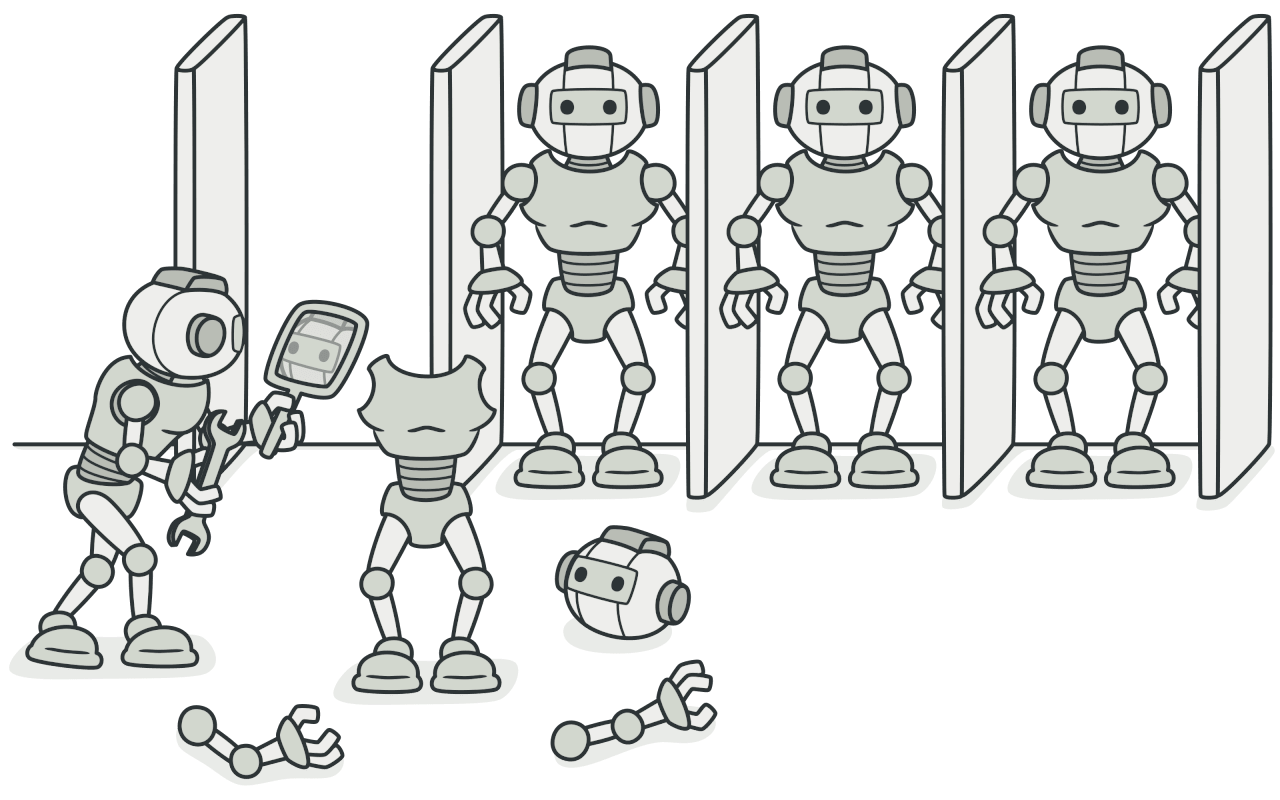原型模式
原型是一种创建型设计模式, 使你能够复制对象, 甚至是复杂对象, 而又无需使代码依赖它们所属的类。
所有的原型类都必须有一个通用的接口, 使得即使在对象所属的具体类未知的情况下也能复制对象。 原型对象可以生成自身的完整副本, 因为相同类的对象可以相互访问对方的私有成员变量。

概念示例
让我们尝试通过基于操作系统文件系统的示例来理解原型模式。 操作系统的文件系统是递归的: 文件夹中包含文件和文件夹, 其中又包含文件和文件夹, 以此类推。
每个文件和文件夹都可用一个 inode接口来表示。 inode接口中同样也有 clone克隆功能。
file文件和 folder文件夹结构体都实现了 print打印和 clone方法, 因为它们都是 inode类型。 同时, 注意 file和 folder中的 clone方法。 这两者的 clone方法都会返回相应文件或文件夹的副本。 同时在克隆过程中, 我们会在其名称后面添加 “_clone” 字样。
inode.go: 原型接口
package main
type Inode interface {
print(string)
clone() Inode
}
file.go: 具体原型
package main
import "fmt"
type File struct {
name string
}
func (f *File) print(indentation string) {
fmt.Println(indentation + f.name)
}
func (f *File) clone() Inode {
return &File{name: f.name + "_clone"}
}
folder.go: 具体原型
package main
import "fmt"
type Folder struct {
children []Inode
name string
}
func (f *Folder) print(indentation string) {
fmt.Println(indentation + f.name)
for _, i := range f.children {
i.print(indentation + indentation)
}
}
func (f *Folder) clone() Inode {
cloneFolder := &Folder{name: f.name + "_clone"}
var tempChildren []Inode
for _, i := range f.children {
copy := i.clone()
tempChildren = append(tempChildren, copy)
}
cloneFolder.children = tempChildren
return cloneFolder
}
main.go: 客户端代码
package main
import "fmt"
func main() {
file1 := &File{name: "File1"}
file2 := &File{name: "File2"}
file3 := &File{name: "File3"}
folder1 := &Folder{
children: []Inode{file1},
name: "Folder1",
}
folder2 := &Folder{
children: []Inode{folder1, file2, file3},
name: "Folder2",
}
fmt.Println("\nPrinting hierarchy for Folder2")
folder2.print(" ")
cloneFolder := folder2.clone()
fmt.Println("\nPrinting hierarchy for clone Folder")
cloneFolder.print(" ")
}
output.txt: 执行结果
Printing hierarchy for Folder2
Folder2
Folder1
File1
File2
File3Printing hierarchy for clone Folder
Folder2_clone
Folder1_clone
File1_clone
File2_clone
File3_clone
